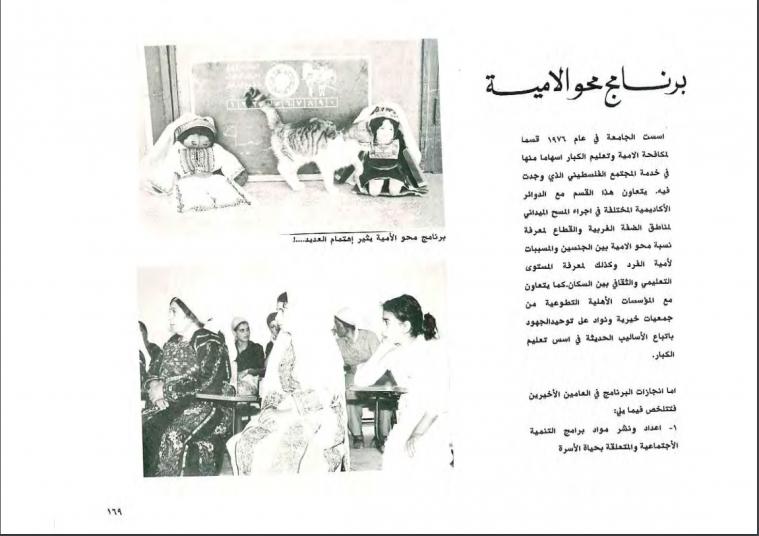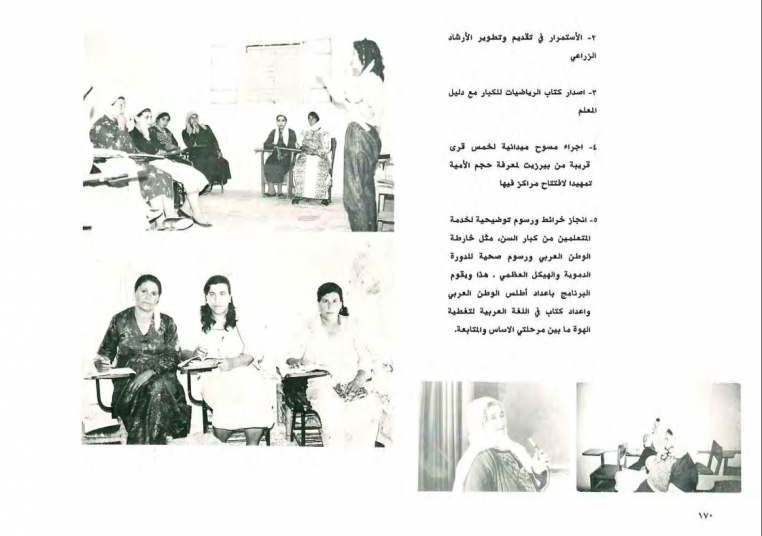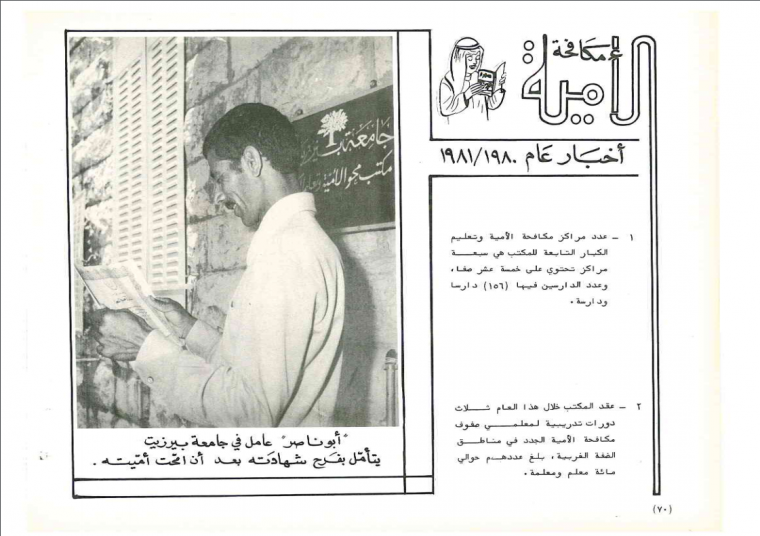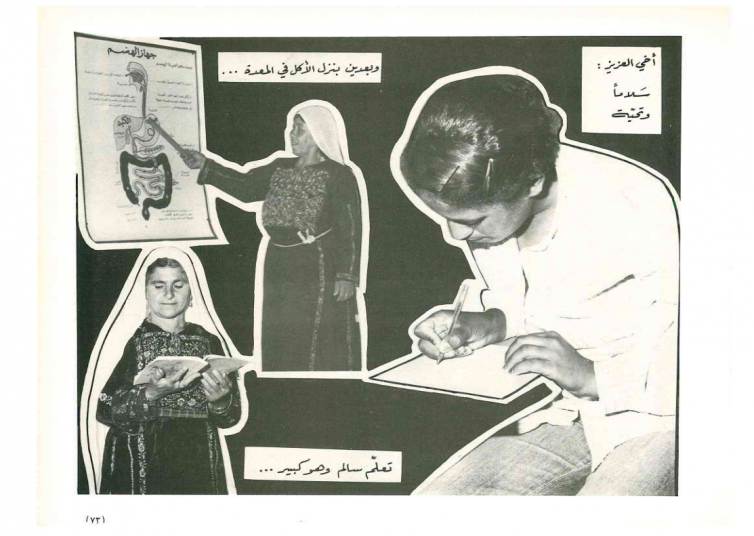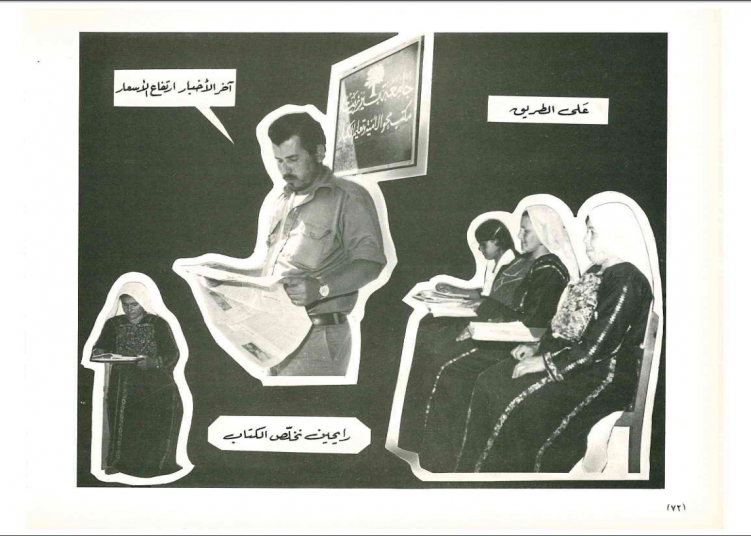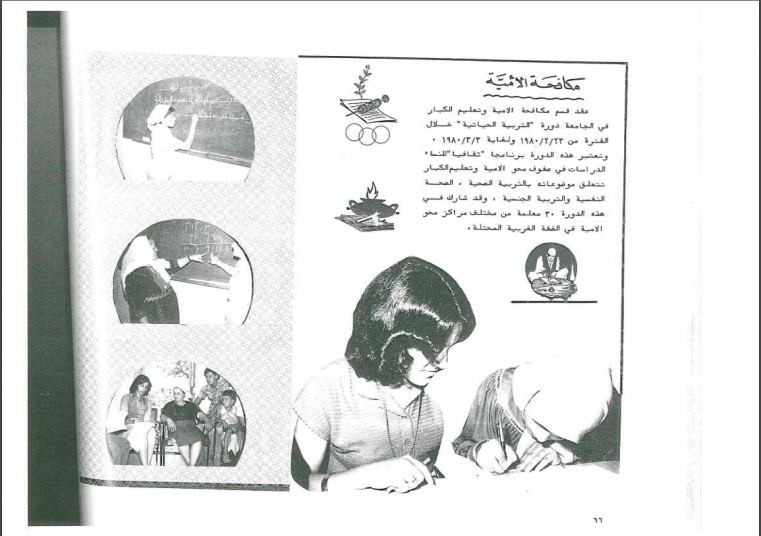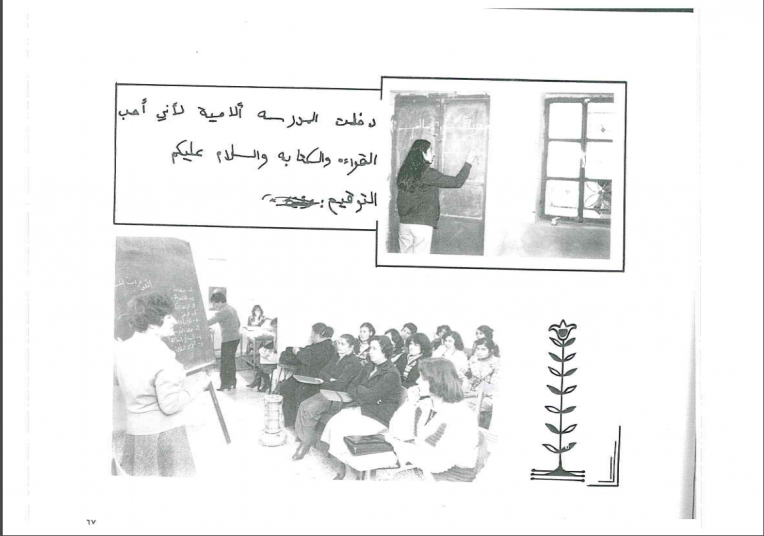Birzeit University’s efforts to combat illiteracy
In the mid-seventies, Birzeit University took upon itself to work in line with the national efforts to fight illiteracy by establishing the Office for Combating Illiteracy and Adult Education. Since its establishment, all the university’s bodies have worked together to offer a wide range of opportunities for people to attain their basic rights in reading, writing, and succeeding in life.
Over the course of thirty years, the program has been able to achieve successful practices and a list of accomplishments, including: preparing and publishing material and programs for social development and others related to family well-being; offering and developing agricultural guidance; releasing a mathematics book for teaching the elderly with a teacher’s guide; and releasing reading material on the culture of health and child psychology. The office also created maps and illustrations to help in teaching the elderly.
The illiteracy program at Birzeit University has not only focused on teaching reading and writing however; it has also worked on developing students’ skills in agriculture, knitting and sewing, and the basics of using computers
One of the most important programs within the university’s efforts to combat illiteracy is the Life Education Program, which is a cultural program that concentrates on topics related to physical, mental, and sexual health. More than 2600 students have benefited from it, and up until today, the program is being taught at the university as an elective course under the title “Life Sciences.”
Birzeit’s program was honored for its distinctiveness at a special ceremony organized by the Arab League Educational, Cultural, and Scientific Organization (ALESCO), and Heyam Abu Ghazaleh, the former director of the Adult Literacy Unit at Birzeit University, now represents Palestine in a regional network for literacy and adult education in Cairo, Egypt.
While September 8 marks International Literacy Day, Birzeit University celebrates the beginning of a new academic year, welcoming around 3000 incoming students, who will be nurtured to be lively, inquiring, discerning, and creative.

